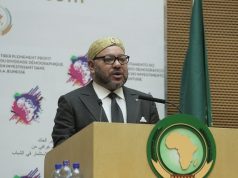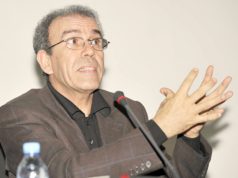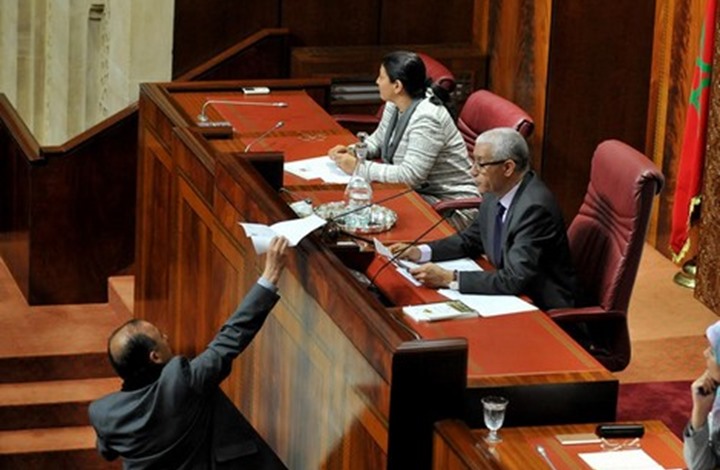[symple_box color=”blue” text_align=”left” width=”100%” float=”none”]
Imed Lassoued is a Tunisian journalist. He earned his Bachelor’s degree in literature from the Faculty of Arts, Letters and Humanities La Manouba of Tunis, Tunisia. You can follow him on Twitter at: @imed2010 [/symple_box]
Tunis, Tunisia—Tunisia is facing a number of grim challenges that are not yet addressed. These challenges are more than political or economical. Tunisia needs to craft a new promising social project that targets its youth. The number of young people who committed suicide in 2014 alone is 203, 74% of which are males aging between 16 and 25. It has been reported that about 3000 Tunisians have joined the war in Syria. This goes without bringing forth the involvement of young Tunisians in terror-related activities in neighboring Libya and even within Tunisia. The terrorist attack on the Bardo museum last 18th of March, which claimed the lives of 22 people, most of whom were tourists, was carried out by young Tunisians. Undoubtedly there is disease, something not functioning properly.
It was the youth who first ignited the revolution. It was also the youth that rallied for freedom and dignity and defied the merciless response of Ben Ali’s regime. The question that irks us today is what is wrong in our youth that pushes them to opt for the wrong decisions and fell prey to radical gangs and their takfiri teachings.
Anyone who followed our politico’s debates over the past four years may quickly notice that a great deal of energy and time were devoted to discuss issues that are not of any concern to ordinary Tunisians like ‘freedom of women, identity, ect.. Such issues have never been a central concern among the overwhelming majority of Tunisians. The drafting of the Constitution has been prioritized over any issue that may touch youth coupled with the long debate over the drafting of a new law that aims at combating terrorism and related activities. These two projects drove some to use it as a political posturing.
Experts in psychology and sociology have pondered over this issue and drew their conclusion. They have pointed out at something really important and alarming. Youngsters have lost the power to dream of a bright future for themselves, their families and their country. And this by all means is in contradiction with the logic of revolutions. The masses revolt against their rulers when they feel that their dreams are unlikely to be realized. Likewise Tunisians revolted because their aspirations and horizons have been narrowed down. Horizons were smashed against a bitter reality. A revolution by definition is putting one’s country back on the right track where the dreams could be concretized. A revolution is a wonderful moment to activate one’s potential and enhance one’s creative power.
The crisis in Tunisia is not political per se. We are simply harvesting the fruits of more than two decades of neglect. Ben Ali’s regime invested a great deal of money and time in making the youth veer from the teaching of Islam, robbing them in the process from its noble values. Over the last two decades Ben Ali embarked on a project that aims mainly at the liquefaction of youngsters. Intellectuals were severed from their society and could not link to the younger generation and vice versa. Any possible channel of communication between elites and ordinary citizens were inexistent, on purpose. Serious works of arts and true Islamic teachings that answers the youth’s needs for knowledge and helps build one’s character to become a useful member in the Tunisian society were banned and not allowed. Instead they were seen as a threat to the well being of the society.
The educational reform is urgent now. It is prime time for the acting government to embark on this sensitive project. Although this government is set to tackle this promising project sooner than later, it should not be a bone of contention like the drafting of the Constitution and other bills. This reform should be promising and should strive at unifying all those who have something to say on the matter regardless of their political affiliations. Tunisians are eager to see an educational reform that reconciles the younger generation with Islam and Arabic, without forgetting critical thinking, the warrant in saving our children from falling into dogma and therefore falling prey to radicalism. We need an educational reform that instills in our youth the values of hard- working, the courage to take initiatives, patriotism, and openness towards other cultures and civilizations as enshrined in the new Constitution of the second republic.
In a volatile region and a world made small by technology and the recent emphasis on globalization, we could all sink, or be saved, together. And God is the grantor of success.






